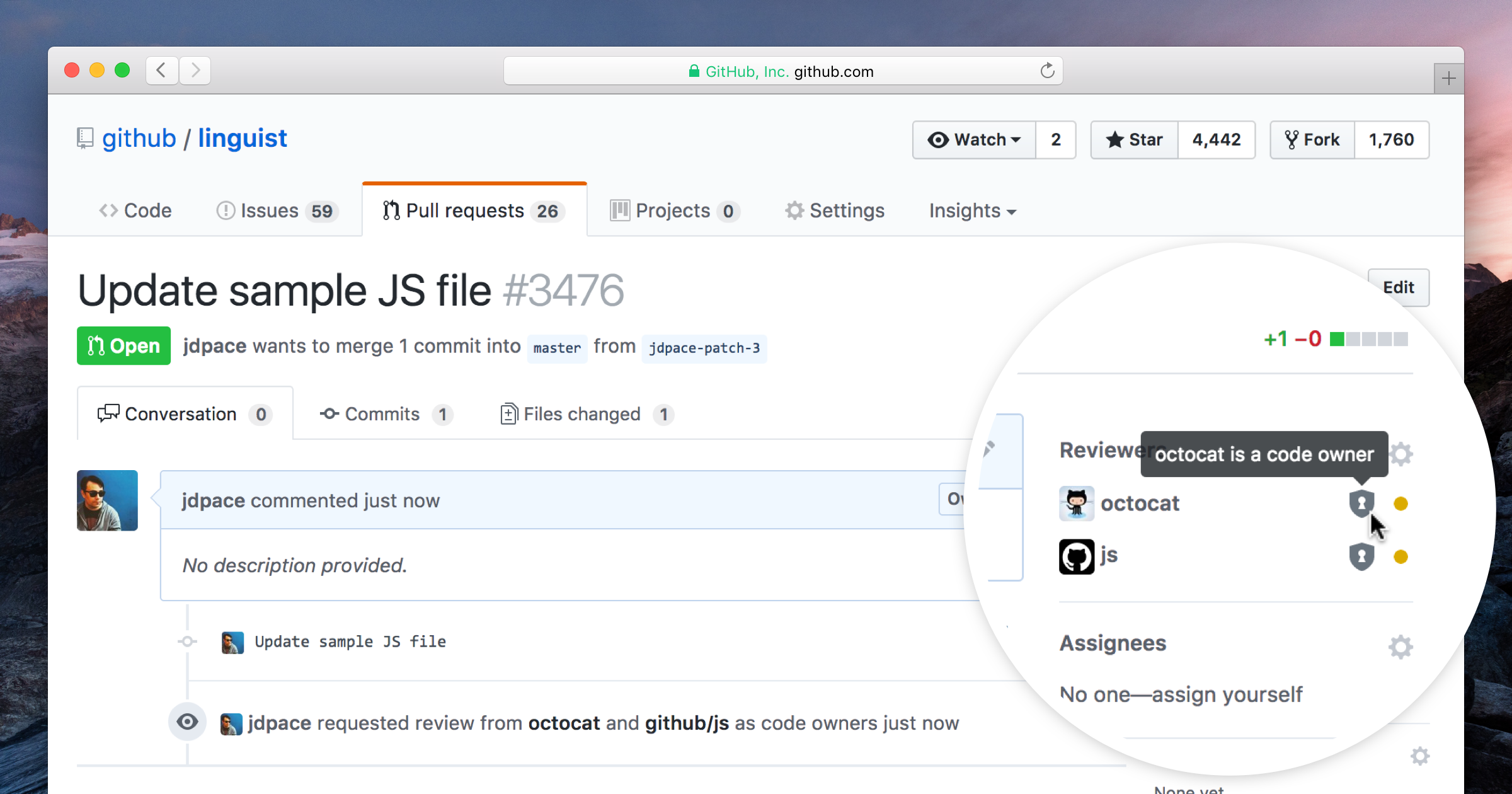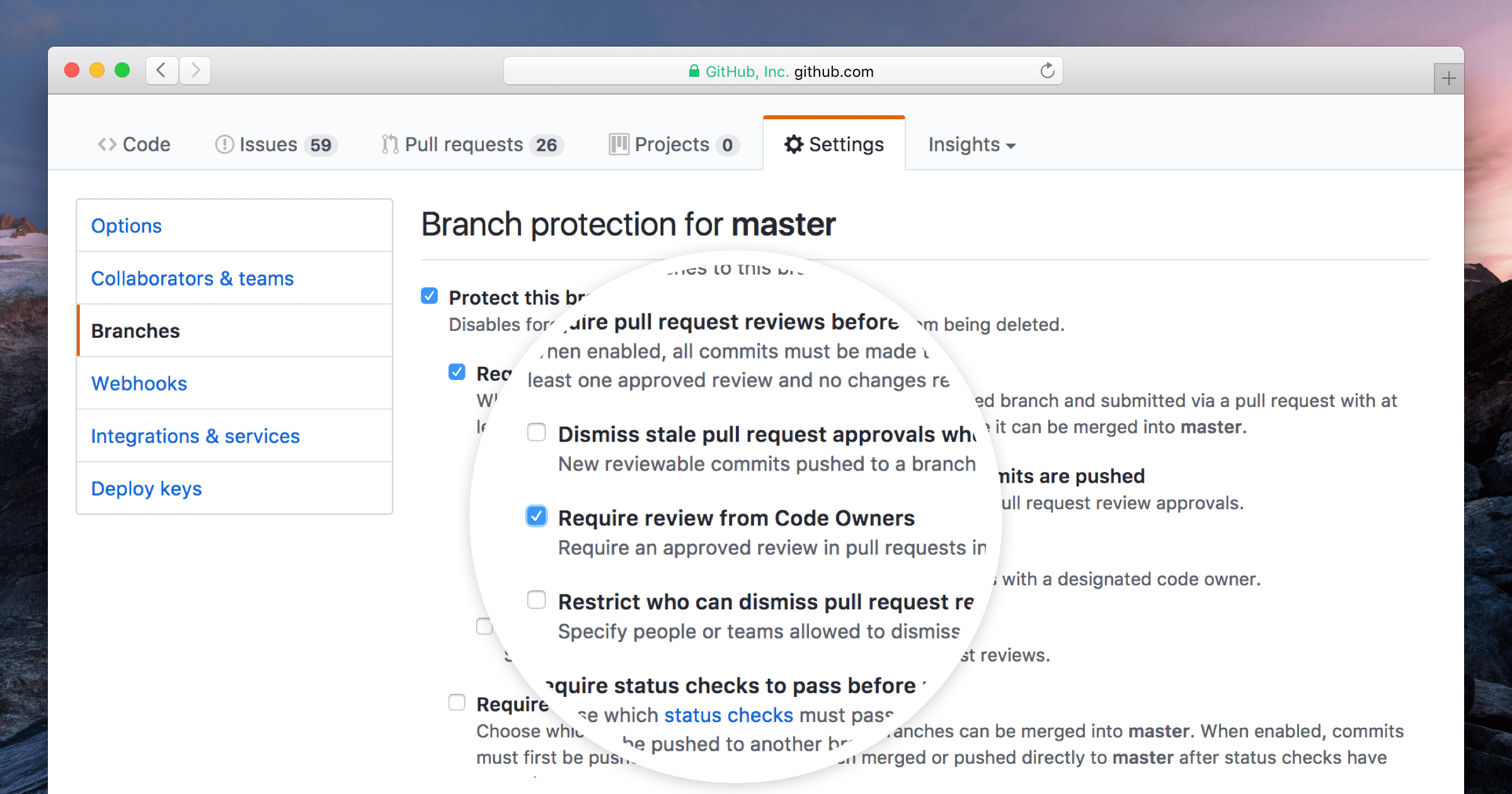Introducing code owners
While effective code review is essential to every successful project, it’s not always clear who should review files—even with GitHub’s reviewer suggestions. Now repository maintainers can define exactly which people…
While effective code review is essential to every successful project, it’s not always clear who should review files—even with GitHub’s reviewer suggestions. Now repository maintainers can define exactly which people and teams need to review projects using code owners. This new feature automatically requests reviews from the code owners when a pull request changes any owned files.

How code owners work
To specify code owners, create a file named CODEOWNERS in the repository’s root directory (or in .github/ if you prefer) with the following format:
# Lines starting with '#' are comments.
# Each line is a file pattern followed by one or more owners.
# These owners will be the default owners for everything in the repo.
* @defunkt
# Order is important. The last matching pattern has the most precedence.
# So if a pull request only touches javascript files, only these owners
# will be requested to review.
*.js @octocat @github/js
# You can also use email addresses if you prefer.
docs/* docs@example.comThis format may be familiar if you’ve used gitattributes.
With that in place, code owners will automatically be requested for review whenever a pull request touches the files they own.
An extra layer of code security
For projects with more rigorous review processes, we’ve also added a new protected branch option to ensure the right people have a chance to review.

With protected branches enabled, a code owner for each owned file has to leave a review before anyone can merge a pull request to that branch.

We hope this helps make your review process even more effective. Let us know if you have any feedback on code owners using our help form.
The code owners feature was inspired by Chromium’s use of OWNERS files.
Written by
Related posts

GitHub availability report: January 2026
In January, we experienced two incidents that resulted in degraded performance across GitHub services.

Pick your agent: Use Claude and Codex on Agent HQ
Claude by Anthropic and OpenAI Codex are now available in public preview on GitHub and VS Code with a Copilot Pro+ or Copilot Enterprise subscription. Here’s what you need to know and how to get started today.

What the fastest-growing tools reveal about how software is being built
What languages are growing fastest, and why? What about the projects that people are interested in the most? Where are new developers cutting their teeth? Let’s take a look at Octoverse data to find out.